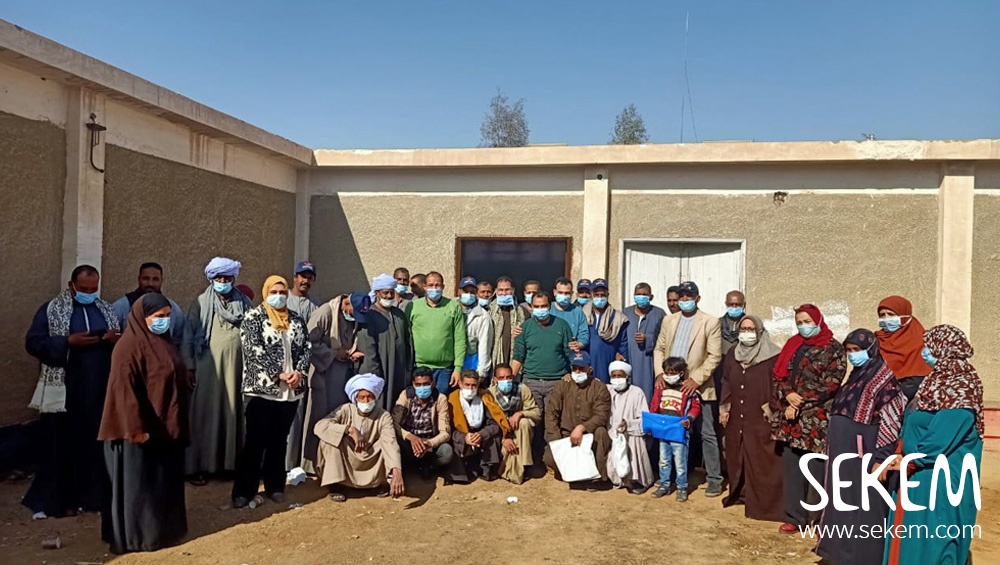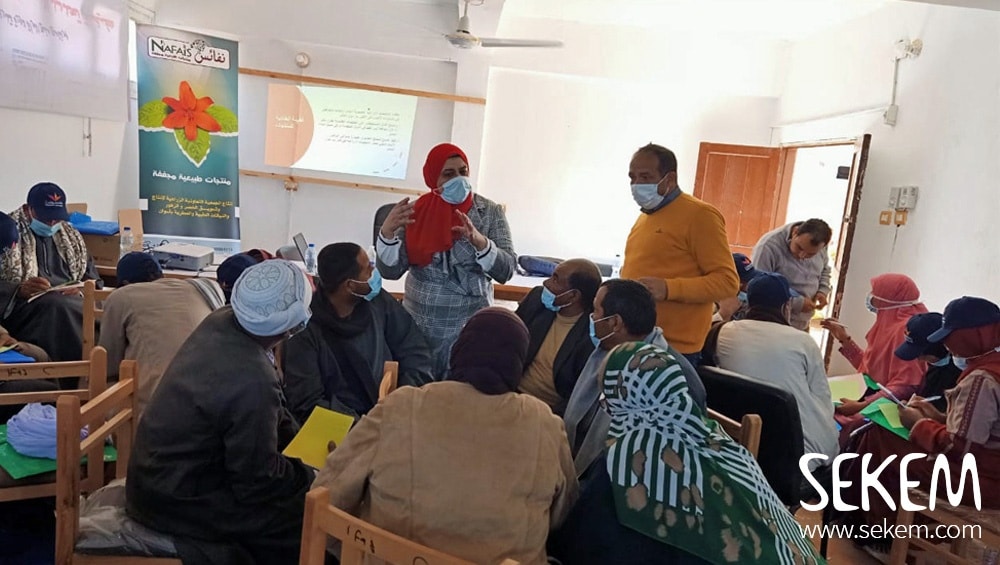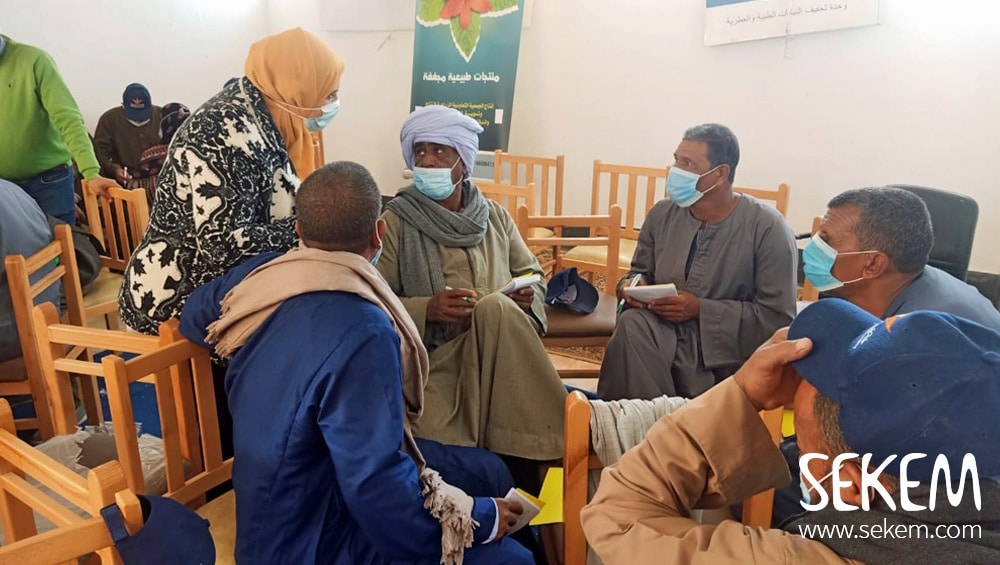At the end of February, a team from SEKEM rumbled over bumpy slopes to a village outside of Aswan. Although the journey was a bit arduous, its reason was very gratifying: The first so-called ToT, Training of Trainers, took place as part of the “Knowledge Hub for Organic Agriculture in North Africa” project, which is financed by BMZ (Federal Ministry of Economic Cooperation and Development) and implemented by GIZ (German Corporation for International Cooperation GmbH).

The experts from SEKEM traveled to Upper Egypt to train future multipliers on site who will carry out micro-interventions in their communities and disseminate knowledge about organic farming after the training has ended. Full of ambition and motivation, they want to contribute to the sustainable development of their villages. The group that came together for the first ToT consisted of 47 men and 6 women. They had come from three different Upper Egyptian districts, among them not only farmers but also, for example, teachers and representatives of agricultural NGOs.

The event lasted four days, from the 22nd till the 27th of February. One full day was spent at a field school where the participants learned concrete, practical things. They for example had a close look at marjoram, artichokes and fennel demo plots while discussing practices of organic agriculture. Subject matters ranged from better fertilization applications to infection symptoms. This experience clearly showed how important it is to establish demo plots in several regions so that the people can have a practical approach to the topic and can experience and see first-hand what organic farming means. Theoretical topics of the training included compost production, the explanation of SEKEM’s Economy of Love and the certification of organic products.
The participants were explained step by step how to receive organic certification as a farmer. In addition to conveying a lot of information, ideas for possible micro-interventions have already been collected and exchanged. A wide variety of suggestions came together, with the participating women being particularly creative. The multipliers for instance have already made plans for female teachers to cultivate a demo plot at the farm of a participating businessman where students will have the possibility to complete an internship. The numerous great ideas focused on the local agricultural cycle and demonstrated how many opportunities there are to gain benefits and profits from organic farming. Estimations on the scope of the multipliers showed that each participant could reach around 20 people per micro-intervention, true to the project’s motto: let the knowledge flow!
Each ToT consists of three events, this was the start for the first group. In total there will be three ToTs in different areas, so there will be a group in the center of Egypt, in Minya, and one in the north. The training for the northern region, which shall target especially people from the Nile delta, will most likely be held in SEKEM. The group from Upper Egypt will continue with the second training session in June.
Tanja Reischl

